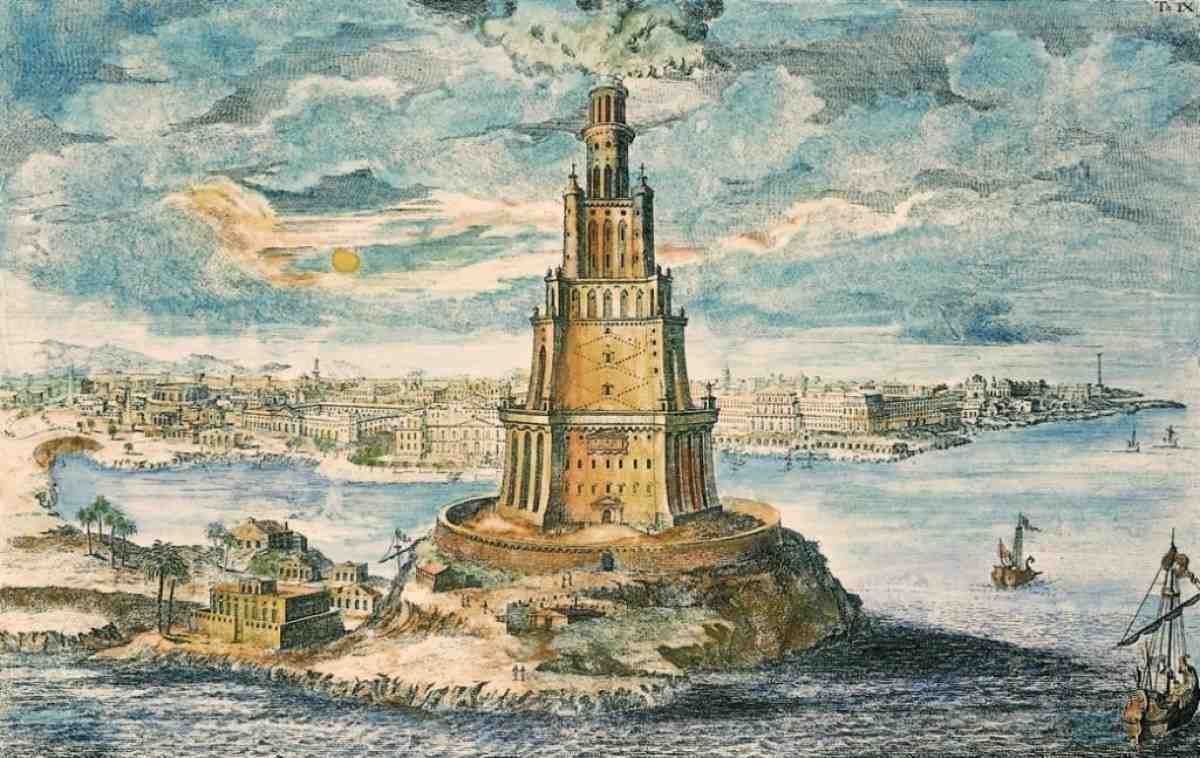The School of Alexandria and its Fathers (1)

* Before Christianity, Alexandria was famous for its various schools. Some of its greatest and most famous schools are the "Musaeum” [origin of the word Museum] which was established by Ptolemy, it’s library had 200,000-500,000 books and manuscript. There was also the Serapeum school and several other Jewish schools.
* St. Mark established a divinity school as a means to anchor the Christian faith and develop the spirituality and the intellect of the Church members. It also acted as a Catechetical School to receive the Christian faith and prepare catechumen for baptism. St. Mark appointed St. Yustus as the director of the school, who later became the sixth Patriarch for the See of Alexandria.
* The Role of the School and its Mission:
1- It quenched the thirst of Christians to religious knowledge and satisfied their spiritual longing.
2- It created spiritual Church leaders, many of whom, over the ages, became patriarchs on the Alexandrian see.
3- It had an evangelistic [Missional] role, so it drew-in many to Christianity.
4- It drew many students from outside Egypt, later they became leaders and bishops in their own churches.
5- It emphasized the importance of catechesis [teaching] as a fundamental element of religious edification.
6- It contributed to the first organized theological study in the Christian world.
7- It used philosophy to counter-attack the pagan philosophers and to refute their doctrine, or to argue with them in a language they understand to bring them as members in the Kingdom of God.
* School Program:
+ It began with offering an integrated collection of general science.
+ It then raises the level of studies to the behavioral and religious philosophy.
+ Finally, it offers spiritual studies in Christian theology through interpretation of the Scriptures .
* Theological Studies Curriculum:
The School of Alexandria offered three curricula:
1- It offered a special curriculum to non-Christians which gives students the basics of Christianity .
2- It offered a curriculum for Christian moral values.
3- It offered an advanced curriculum for divine wisdom and spiritual knowledge.
The curricula were unique because of their practical approach; they offered worship practices and studying, fasting and communal prayers, teachers and students.
* Directors of the School:
Let us see some of the most famous directors of the school:
1- Athenagoras:
+ Originally, he attacked Christianity, but studying the Bible, critique it, attracted him to Christianity in 176 AD.
+ In 177 AD, he wrote 37 volumes in Christian apologetics, then he travelled to present it to emperor Marcus Aurelius. In his apology [defense] he refuted the three accusations directed to Christianity: Atheism, Cannibalism, and Sexual immorality. His apologetic arguments were calm, moderate, and rationale.
+ Among his writings are 25 volumes on the Resurrection of the dead, in which he used philosophical and rational proofs as well as divine revelation proofs.
2- St. Pantaenus:
+ His disciple, Clement, described him as “the
Sicilian bee” gathering the nectar of the flowers of
the prophetic and apostolic meadows, placing in the souls of his hearers a treasure of pure and everlasting knowledge.
+ He was born and raised in Alexandria in the early second century, he was a famous stoic philosopher.
+ He converted to Christianity at the hands of Athenagoras, and in 181 AD he became his successor as a director of the divinity school for about ten years.
+ He introduced philosophy and secular science to the school curricula to gain the pagan heretics. Hence, he gained many.
+ He, and his disciples and aids, get the credit for establishing the current Coptic alphabet and the current evolution of our ancient Egyptian language. He used the Greek alphabet and added to it seven ancient demotic letters. This enabled the translation of the Holy Bible into Coptic under his supervision. Researchers give this translation a great importance, some even consider it equal to the original Greek Septuagint itself.
+ The school was not merely a religious and scientific institution, but rather it was a living part of the church. Pantaenus was a teacher, mentor, role model, and a father to many. He interpreted all the books of the Bible from Genesis to Revelation, so he was called “The commentator of the word of God.” Unfortunately, very little of his writings are extant through the writings of his disciple Celement.
+ In 190 AD, Pope Demetrius sent him to a Christian mission to India, so he left the school under the directorship of Clement. He also preached in Ethiopia, Arabian Peninsula, and Yemen.
+ He departed in 202 AD.
To be continued.